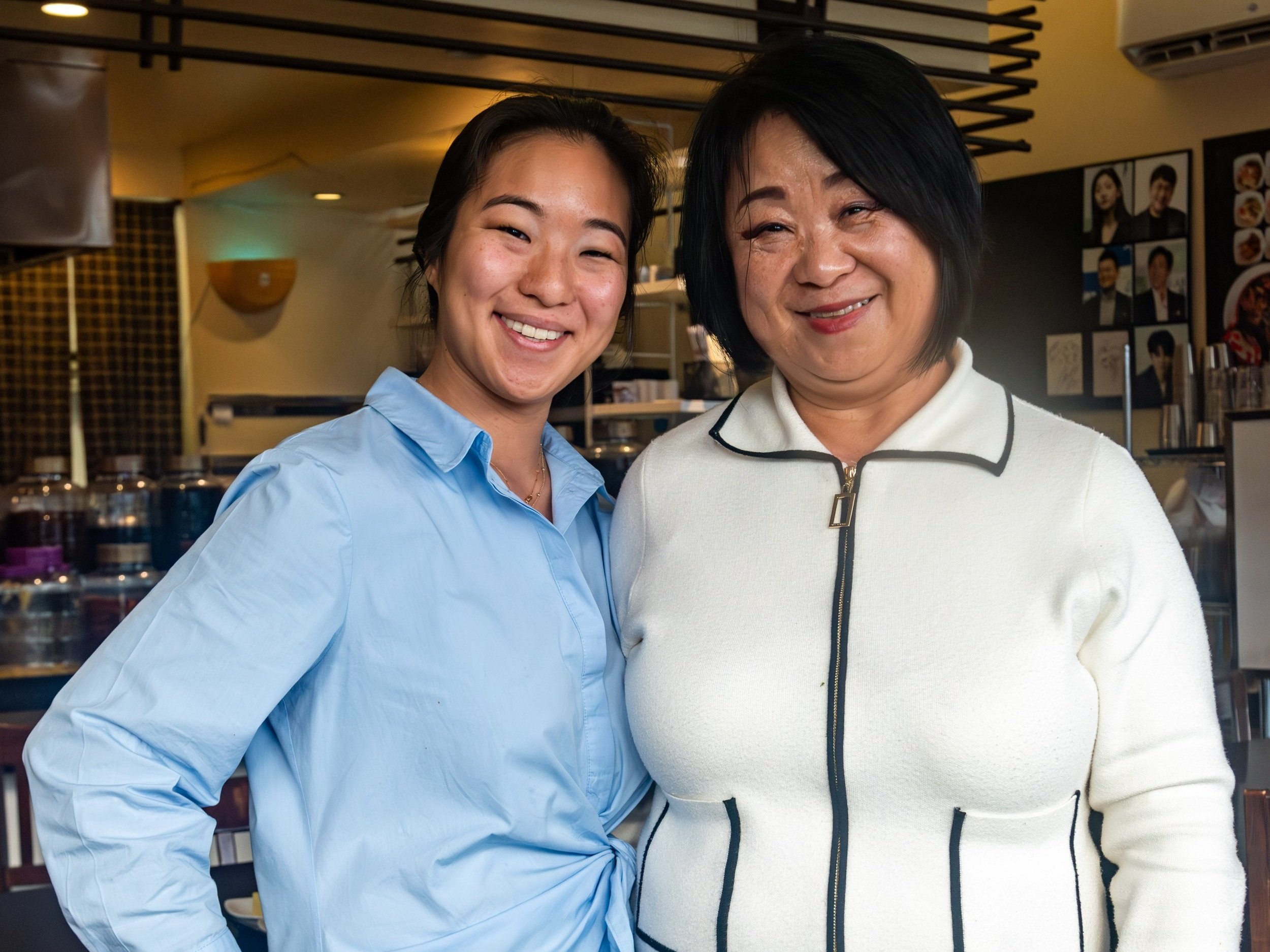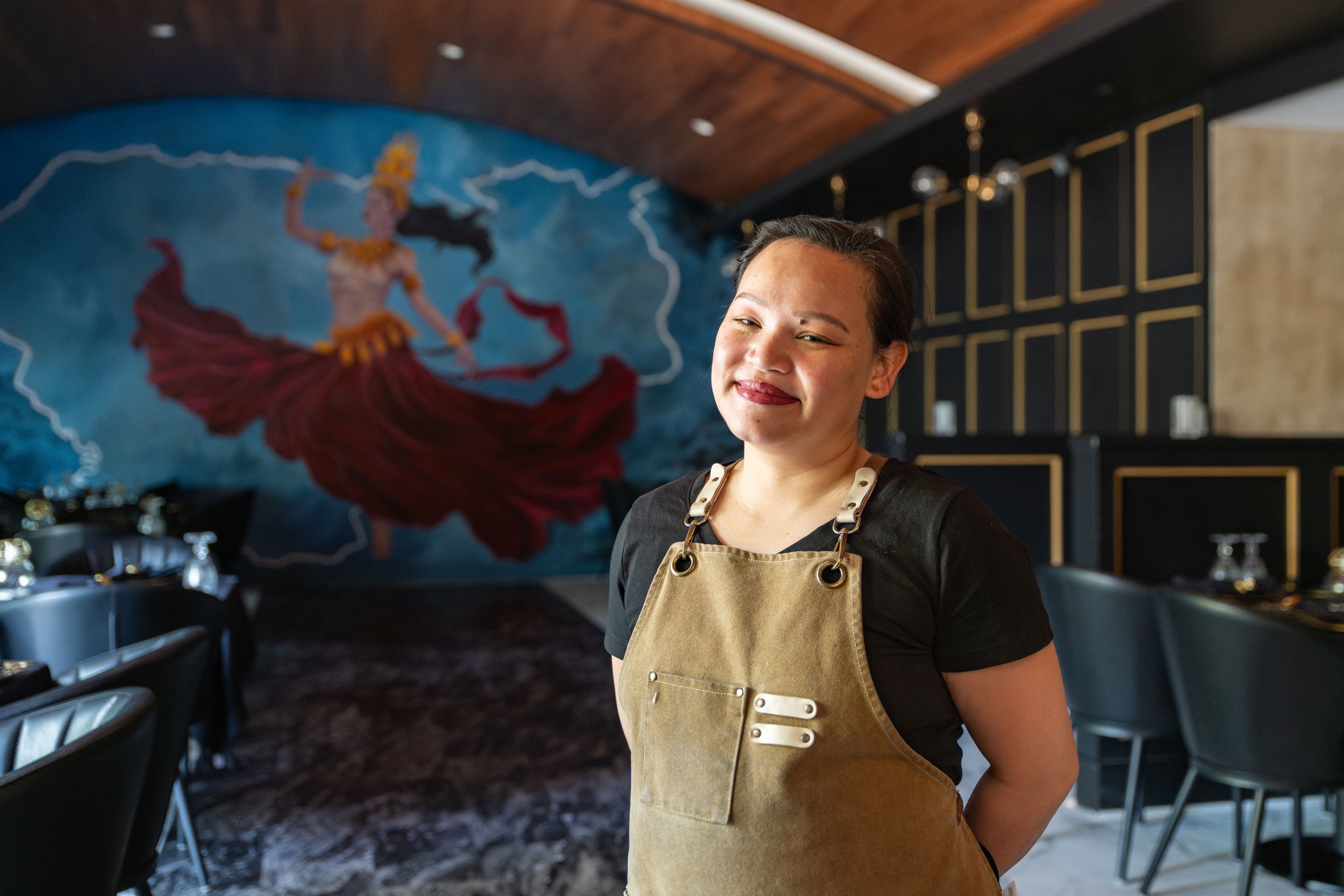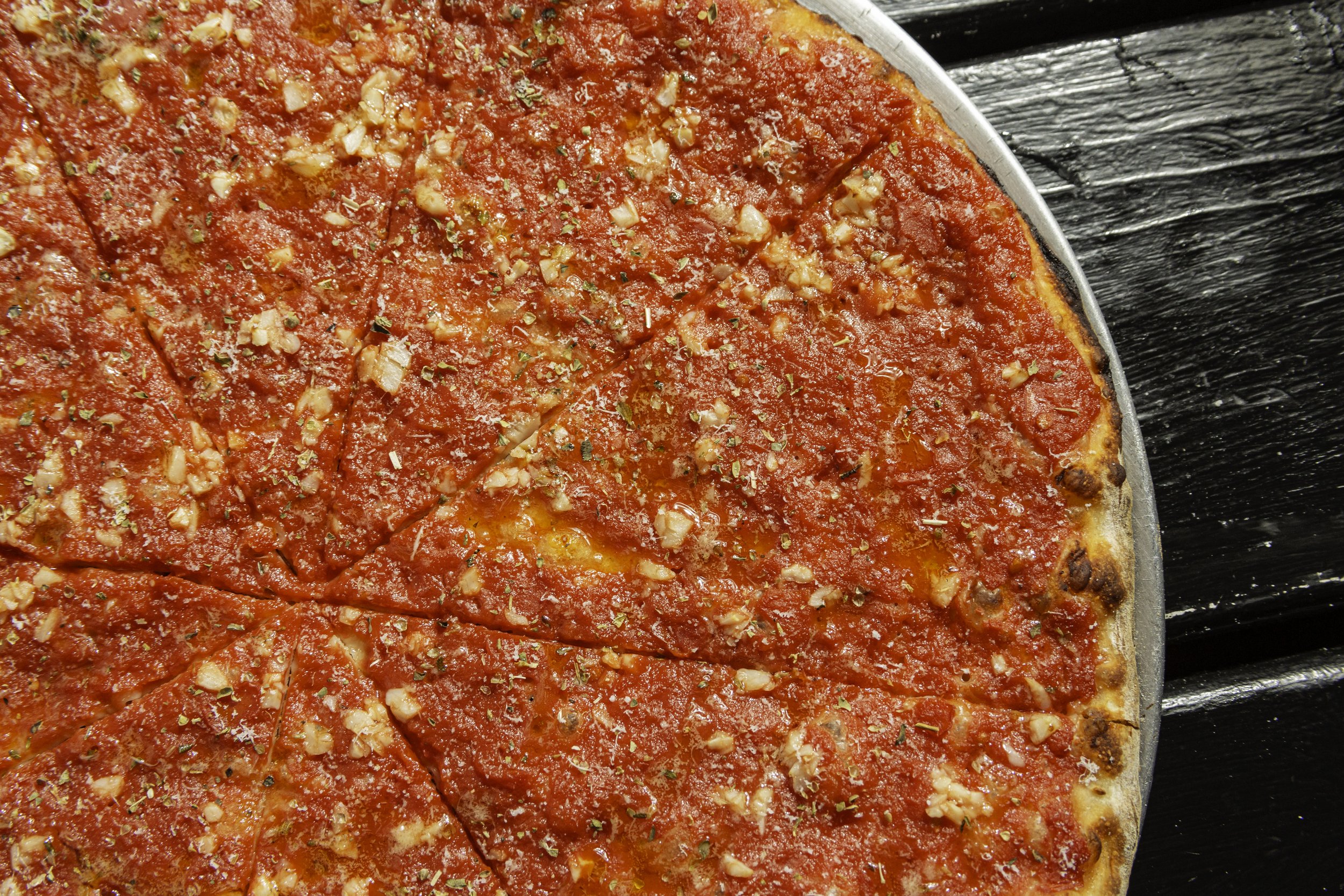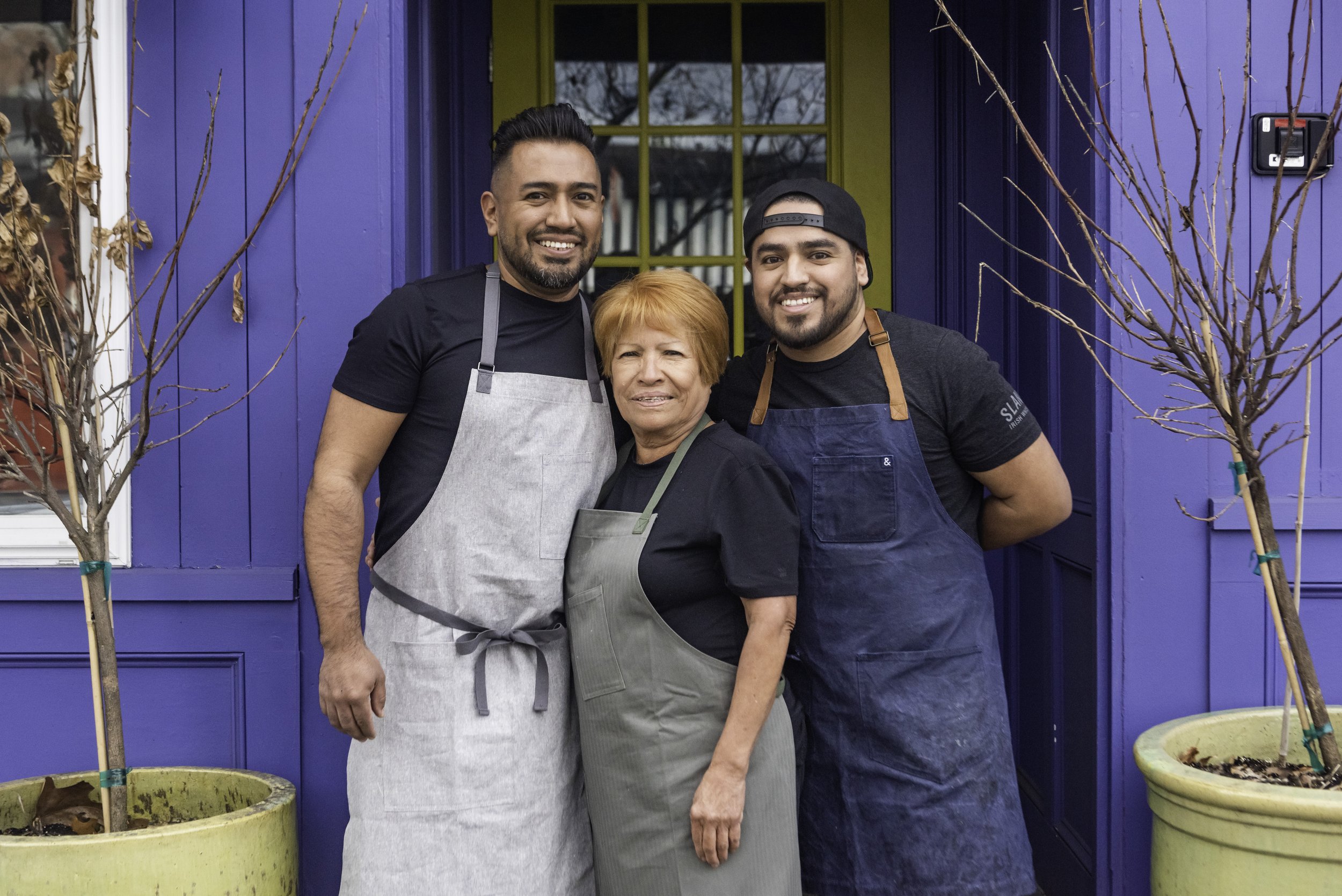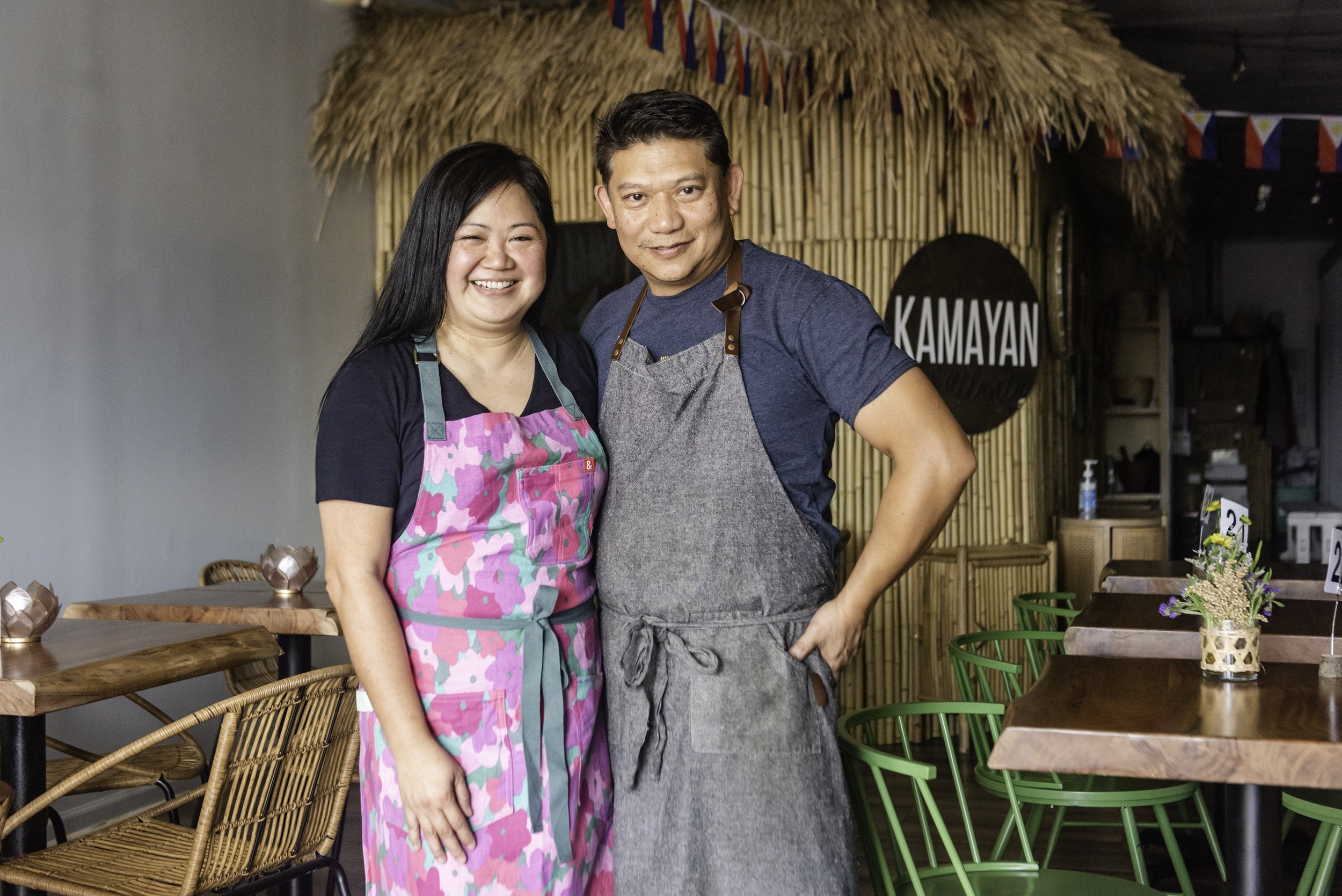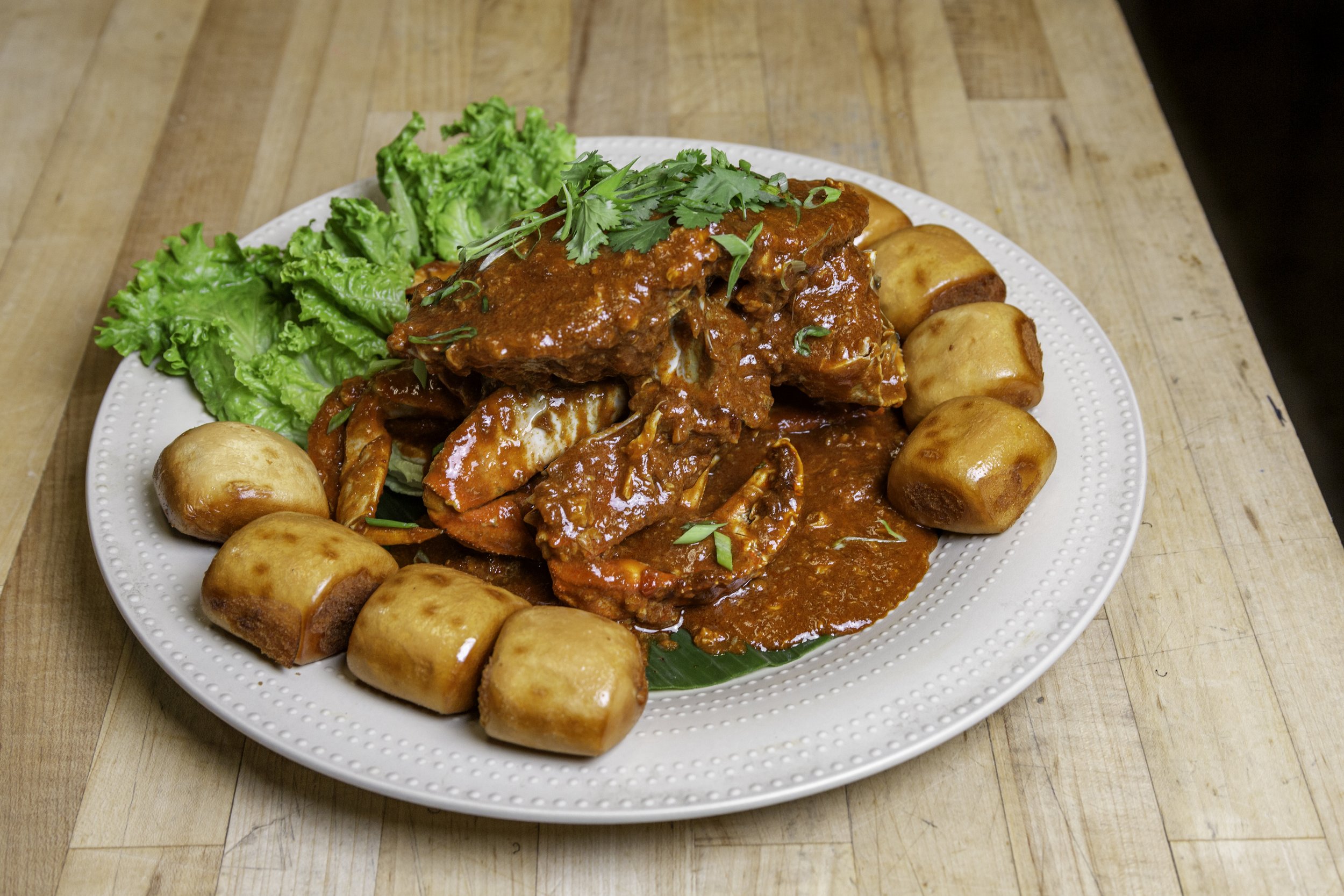Framing the Future: Preservation and Progress at Soban
Second generation chef Deborah Pak is helping to evolve a Koreatown mainstay.
photos: will blunt
Seat yourself at one of six lacquered tables at Chefs Jennifer and Deborah Pak’s casual yet refined restaurant, Soban, perched on the border of Los Angeles’ Koreatown and Hancock Park, to witness banchan flying off the pass. Top your steaming bowl of rice with crunchy, spicy, smoky morsels of sunchokes tossed in gochujang, sesame oil, and white balsamic, or savor a bite of charred snap peas with gochugaru and garlic. You won’t find these banchan anywhere else, because they come from Deborah’s near-obsessive trips to the Santa Monica Farmers Market.
“The last year and a half, I’ve been having more fun with the banchan,” Deborah says. “I make friends with the farmers, who put things aside for me. They say, ‘These special radishes are for you, we’ve been working on them.’”
Deborah is experimenting with Californian locavore cuisine while carrying on the time-honored traditions of her Korean ancestors, as well as the hard work her immigrant parents invested into the restaurant. She has helped out at the restaurant on and off for the past seven years, but in 2021, Deborah stepped up to take on more of the workload (though her parents still run Soban one day a week).
There are challenges aplenty in running a legacy restaurant, from managing an inherited staff to simply working with one’s parents, Deborah says, but there are solutions.
Deborah is streamlining Soban with systemic changes. Gone are the double-carbon tickets written out in Korean, Spanish, and English. They have been replaced by a POS system and the Resy reservation app, which has drastically improved Deborah’s work-life balance. “I love being able to go on the apps if I’m at the farmers market, and if they’re not slammed, I don’t have to force myself to come in.” Deborah says folks are shocked that a Koreatown restaurant takes reservations on Resy, but it’s a sign of evolution.
Deborah’s mother, Jennifer, however, is uncertain about all the changes, including a potential future of charging for extra rounds of banchan. She opened Soban’s doors in 2010, and together with her husband, Renxi, shepherded the Koreatown outpost for over a decade. More of a traditionalist, Jennifer has served eundaegu jorim and ganjang gejang to the thousands of customers who have visited her restaurant.
As Koreatown’s elderly generation of restaurant owners ages, though, fewer of their children are choosing to take on the family mantle. Deborah understands the importance of what she’s choosing to do.
“Customers say, ‘You have to learn everything, you can’t let this place close.’ I do feel that weight on me, and I’m very proud to do that,” she says.
soban banchan
Soy-Marinated Raw Crab, Ginger, Scallion, Jalapeño, Cinnamon
That’s why Deborah is careful not to alienate Soban’s oldest and most loyal customers. “Our restaurant is a very traditional Korean restaurant. There are things I plan on changing slowly, but I want it to be accessible and approachable for the people that have been coming here for years. They live in Koreatown, they're Korean, and I don't want them to feel like things have changed too much or aren’t organic. I don't want to ostracize our original clientele.”
Deborah makes a point to engage with the neighborhood, and the larger Korean food-loving community, with events like November 22’s Kimchi Day, a formal designation by the state of California. Deborah helps the Korean Cultural Center with its annual kimjang, when a large quantity of kimchi is joyously concocted as a community.
Looking to the future, Deborah is ambitious and experimental. She has her eyes on a different Soban—one where the restaurant can be many things to many people. She envisions halmonis and harabojis dining on galbi-jjim and ganjang gejang side-by-side with tourists sampling a tasting menu of seasonal Korean-Californian tapas. She imagines a bustling restaurant with a thriving takeout menu and offsite catering, open seven days a week. She can see a beverage menu stacked with soju, beer, and cocktails. She’d like to do more cooking classes, and maybe even empower those halmonis and harabojis themselves to teach tteokbokki and banchan classes. And oh, how she’d love a walk-in.
But above all, she wants to keep running Soban, which is her home, her community, and her family.
“We have had three generations of families come in to eat at Soban, and I’ve watched babies grow big. Recently, a customer told me our food reminded them of their grandma’s cooking, and their grandma isn’t around anymore.” Deborah’s voice cracks as she gets emotional. “It’s a great feeling, and it reminds me that what I’m doing is bigger than me. Maybe every day isn’t exactly what I would like to be doing, but on my really, really tough days, it reminds me that it’s worth it.”

